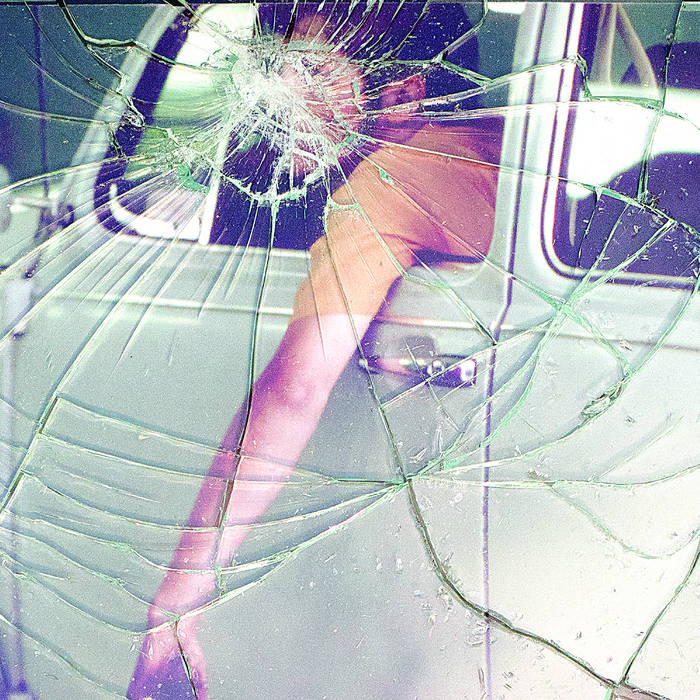
April March "In Cinerama"
April March has quite the resume: an animator on Pee Wee’s Playhouse and for Madonna’s “Who’s That Girl” video, and collaborating with Brian Wilson, Jack White, LL Cool J, Jonathan Richman, Ronnie Spector and Bertrand Burgalat. But she also has an acclaimed recording career, heavily influenced by French pop music, making a name for herself in France with her self-produced albums as well as albums with Bertand Burgalat and Aquaserge.
Following a quarter century of recording, March unveiled In Cinerama as a vinyl-only release for Record Store Day in 2021. It was an unprecedented success, selling out of its small run before most could hear the magic. In Cinerama has a wide sonic span from Nigeria to California, with Fela Kuti’s drummer Tony Allen at the helm and The Beach Boys’ Marilyn Wilson-Rutherford by his side, as well as talented friends ranging from the French underground to Nashville; The 11 tracks, co-written and co-produced by Mehdi Zannad, recall the 5th Dimension, Belle And Sebastian and even your favorite Gainsbourg or Curt Boettcher productions but stand on their own just as fresh and contemporary as the waves of Malibu or a Parisian Uber.

Colpitts "Music from the Accident"
The music of composer and percussionist John Colpitts is as fearless as it is far-reaching. As one of New York’s most in-demand improvisers and drummers, Colpitts’ prolific list of collaborations speaks to his omnivorous and innovative approach to music. He operates at the vanguard of new music, whether working with pioneering composers like William Basinski and Laurie Anderson, outrock explorers Boredoms, Oneida and Spiritualized, or fellow contemporary sonic adventurers Greg Fox and Jan St. Werner. On new album Music from the Accident, Colpitts eschews his Man Forever and Kid Millions monikers to present his most vulnerable and resonant work to date, charting an important period of transformation for the composer.

Delia Meshlir "Calling The Unknown"
Swiss musician Delia Meshlir didn’t realize what her voice could do when she started out playing music. Through such groups as the drudge-rock Cheyenne and experimental Primitive Trails, Delia let the music lead her singing along. It wasn’t until she began writing the songs for Calling The Unknown that she started allowing her vocals to preside. Unbounded by structure, Delia Meshlir’s first full-length under her name brings layers of beauty, intensity and strength, all coming to a head with her striking vocal delivery.
Delia lost her grandmother while preparing the album, and many of the tracks reflect seeking a path through grief with love. On “A River”, she explores where feelings can exist when they are for someone who has passed. She sings: “I’m calling the unknown/but no one remains.” As the first song on the album, it serves as a perfect introduction to the album, with refined drumming, reverb-wrapped guitars and tasteful saxophone lines. At command of a full band, Delia never abuses the opportunity, often having members hold back in restraint and add mere touches of color to her songs. However, when more urgency is required, Delia adapts beautifully, as on the raw and driven track “Dirty Colors”. Ultimately, the album is an invitation to peace after suffering.

Yumi Zouma "Present Tense"
Yumi Zouma, the collaborative long-distance project originally created between friends online, have been self-producing their infectious blend of delicate pop tapestries by way of home recordings since the release of their debut EP in 2014. Composed of vocalist Christie Simpson, bassist / vocalist Josh Burgess, guitarist / multiinstrumentalist Charlie Ryder, and drummer Olivia Campion, Yumi Zouma have returned with Present Tense, the band’s fourth and most comprehensive studio album. On Present Tense, Yumi Zouma bolster their sonic palette with an arsenal of live drums, grand pianos, orchestral strings, and woodwinds, to develop a sonic confidence that has grown with the release of 2017’s Willowbank and 2020’s Truth or Consequences.
Recorded in between Los Angeles, London, Florence, New York and New Zealand, Present Tense effortlessly glides between ballads like “Where The Light Used To Lay”, and bangers like “In The Eyes of Our Love” – arguably one of the most immediate songs the band has ever written. On “Mona Lisa”, the quartet adds to their vast collection of undeniable melodies, with Simpson’s adlibs and harmonies shining bright atop a battery of percussion and saxophones.